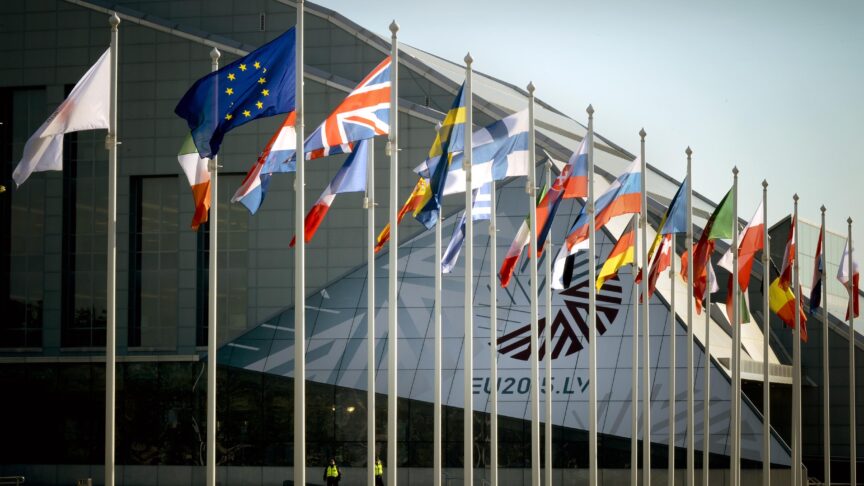A digital agenda for the Eastern Partnership
By reforming the Eastern Partnership, the EU can capitalise on the huge opportunities for economic and social development created by digitalisation
The Eastern Partnership (EaP) needs an upgrade. This flagship policy of the European Union needs to evolve in line with the changing priorities and interests of the bloc and its eastern neighbours in everything from anti-corruption and security cooperation to gender equality and the environment. As the EU works to reform the EaP in such areas, it should pay particular attention to digitalisation: some of the bloc’s eastern partners have a keen interest in cooperation on the digital single market.
Digitalisation creates huge opportunities for economic and social development in EaP countries. Globally, Moldova ranks in 47th place for its use of information and communications technology, while Georgia and Ukraine rank in 57th place and 74th place respectively. These countries also have very dynamic IT sectors, creating significant potential for synergy with the EU in this area.
At the same time, digitalisation poses potential threats in areas such as privacy and cyber security. And there are several other obstacles to EaP states’ participation in the EU digital single market, such as their lack of domestic certification procedures for e-businesses. (These issues, which are not unique to the EaP region, have led NGOs to set out the Principles for Digital Development.)
Given the many socio-economic challenges in the region, it is important to identify topics that should be part of a joint digital agenda for the EU and EaP countries. At the national level, they should support governments in strengthening digital civil society and establishing structures and capacities for the development, implementation, and dissemination of digital solutions. And they should adapt EaP digital governance and regulatory frameworks to the EU’s standards and its concept of ‘digital public goods’. At the local level, they should build innovation ecosystems around researchers, academics, businesses, civil society organisations, and government bodies.
Globally, the German government aims to support a network of at least 15 digital transformation centres in developing countries
The EU and EaP countries should coordinate these efforts through physical and virtual hubs designed to promote digital transformation. These hubs would bring technical know-how, academic IT knowledge, and digital entrepreneurship under one roof, becoming focal points for the development of creative digital solutions by both investors and tech companies. Initiatives of this kind underpin EU efforts ranging from the European Institute of Innovation and Technology’s Knowledge and Innovation Communities to the more recent European Digital Innovation Hubs, which will have received approximately €101 million in EU funding by 2027.
The EaP region already has several promising, albeit loosely connected, digital initiatives. The German government established a flexible Public Administration Reform Fund that has, among other things, supported e-governance measures to promote transparent administrative processes. Several EU projects seek to develop IT clusters such as EU4Moldova: Startup City Cahul – which focuses on skills and entrepreneurial activities in southern Moldova, including through a seed fund and an acceleration programme for innovative start-ups. Another prominent project demonstrates the opportunities of ‘reverse development’: with the support of German development bank KfW and the TUMO Centre in Berlin, Germany gained an innovative approach to extracurricular digital education through a knowledge transfer from Armenia. And the Eastern Partnership Civil Society Facility supported the development of digital social solutions through a series of ‘hackathons’ in 2016-2020.
Coordinating all these initiatives and linking them to EU and global networks are vital to the digital transformation of the EaP region. In the EU, these tasks could be facilitated by networks such as Knowledge and Innovation Communities, the European Open Science Cloud, the European High Performance Computing Joint Undertaking, and the Coordinated Plan on Artificial Intelligence, as well as the deployment of secure 5G telecommunication networks.
Globally, the German government aims to support a network of at least 15 digital transformation centres in developing countries. Five of these forums for engagement between citizens, private companies, and civil society actors are already up and running. The integration of EaP countries into this network could benefit the EU, which could learn from their digitalisation experiences and adopt their most effective solutions.
The EU and the EaP should begin by concluding agreements on mutual recognition of electronic trust services that would facilitate trade and economic cooperation through cross-border e-services, the recognition of e-signatures, and the digitalisation of services. This requires the harmonisation of legislation on personal data protection (including the General Data Protection Regulation, parts of the acquis communautaire, and some Council of Europe conventions) and corresponding national legislation to implement it. The inclusion of willing EaP countries in the Digital Economy and Society Index would help the EU assess the evolution of their digital performance and competitiveness.
One of the overall aims of digitalisation should be to improve climate protection and the quality of public services in cities. This requires the development of technologies for urban management in areas such as the circular economy, the energy transition, mobility, and energy efficiency. Only by ensuring that national regulations benefit citizens can the digital transformation create a more resilient EaP region.
Alexander Kleibrink is senior policy officer for development cooperation with Ukraine and the Eastern Partnership in Germany’s Federal Ministry for Economic Cooperation and Development (BMZ).
Dirk Schattschneider is the head of the directorate for sustainable supply chains, nutrition and rural development and sustainability standards at Germany’s Federal Ministry for Economic Cooperation and Development (BMZ). He is also the commissioner for the special initiative “ONE WORLD No Hunger”.
The content of this publication does not reflect the official opinion of the Federal Ministry for Economic Cooperation and Development or the German government. Responsibility for the information and views expressed herein lies entirely with the authors.
The European Council on Foreign Relations does not take collective positions. ECFR publications only represent the views of their individual authors.



